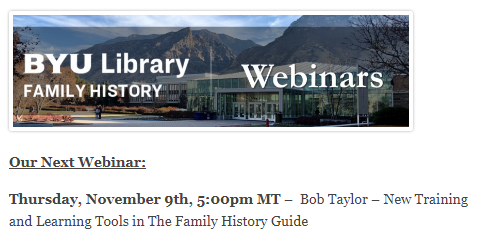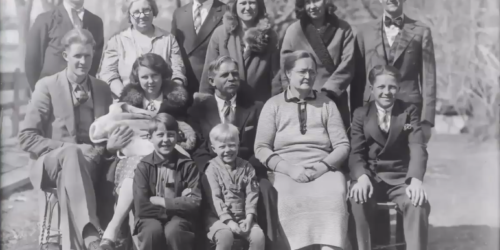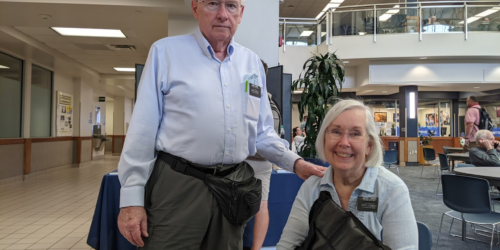New BYU FHL Webinar to Feature The Family History Guide
This week the BYU Family History Library will feature a new webinar, titled “New Training and Learning Tools in The Family History Guide.” The webinar is scheduled for Thursday November 9 at 5 p.m. Mountain time. You can register for the webinar here – https://fh.lib.byu.edu/classes-and-webinars/online-webinars/ – and the recording will be posted on the BYU FHL YouTube Channel about a week...









